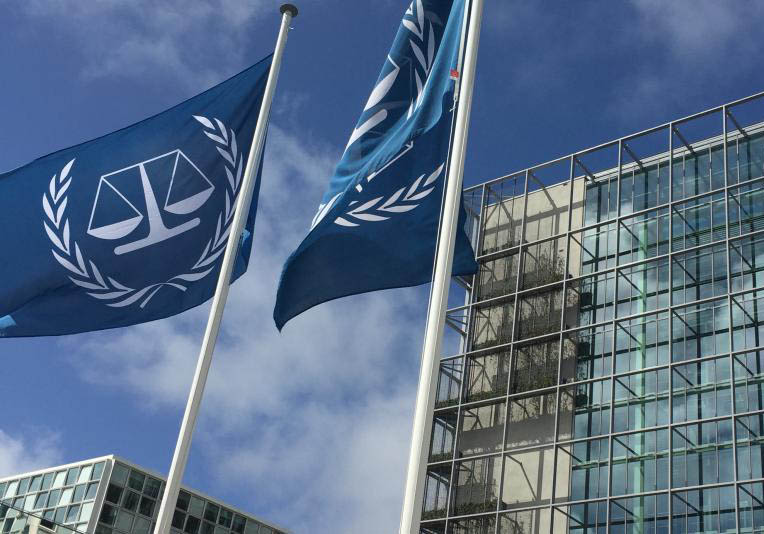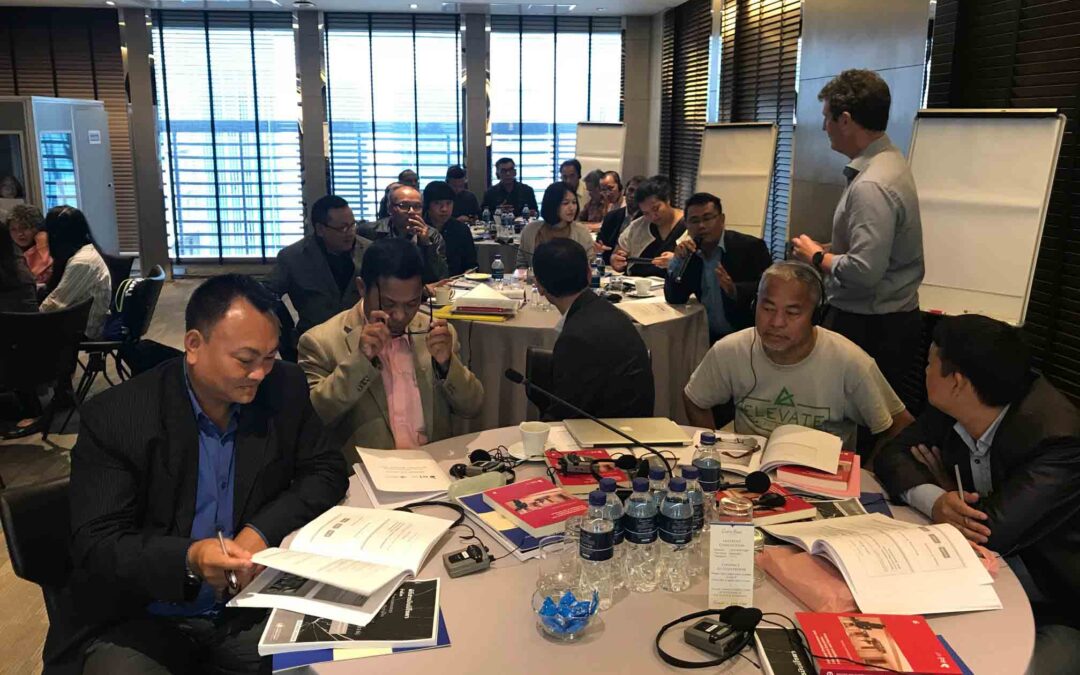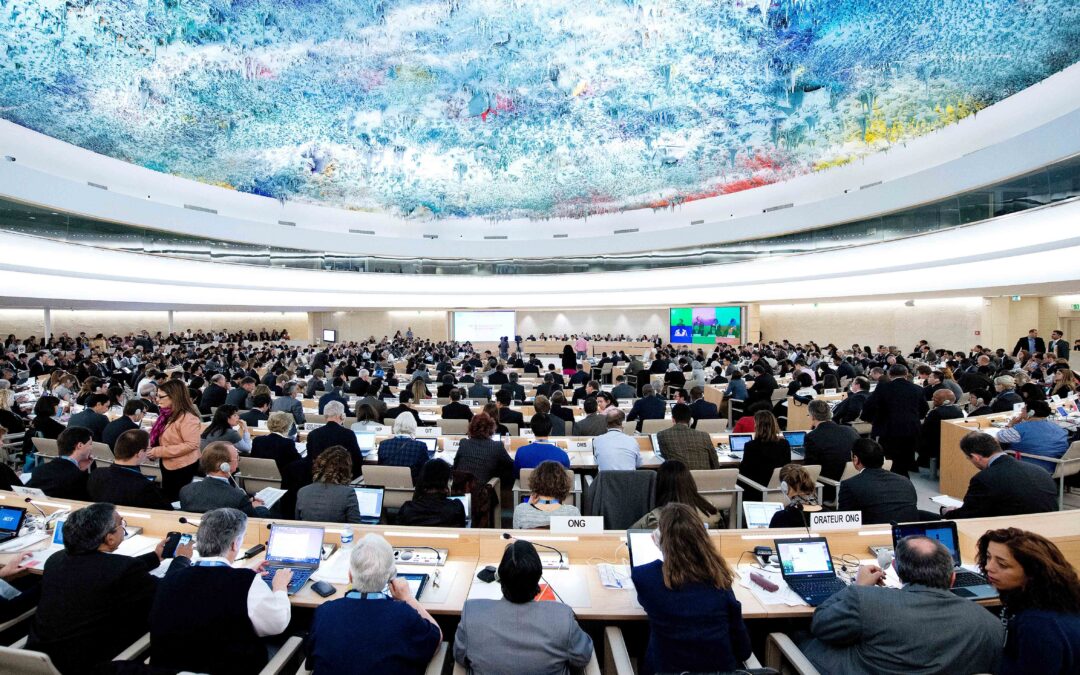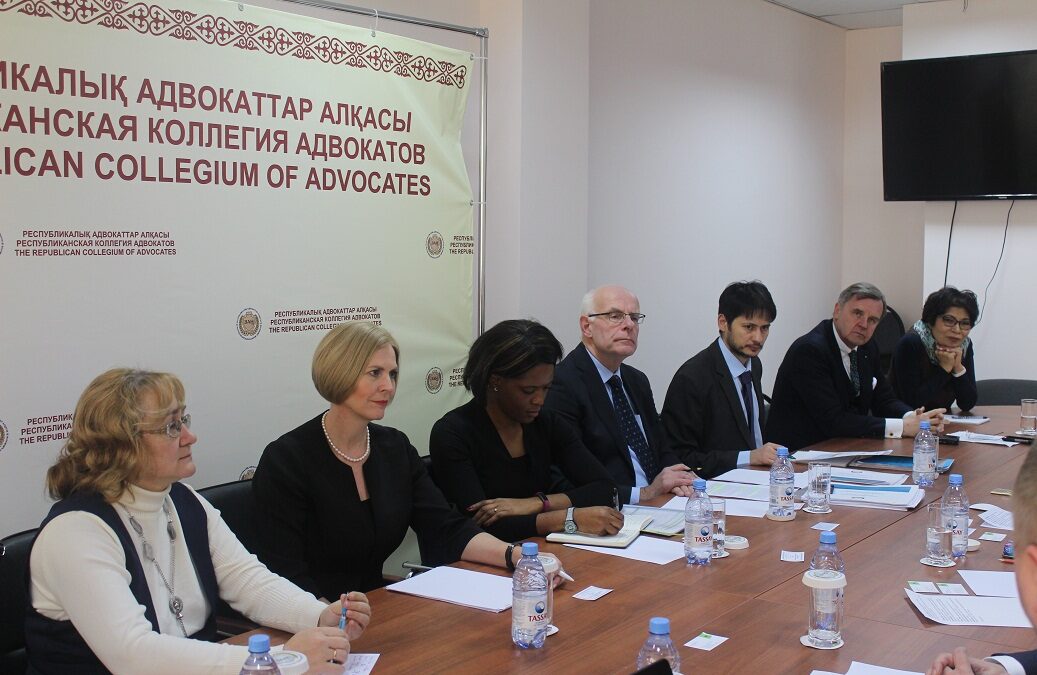
Dec 8, 2017 | News
US President Donald Trump’s declaration recognizing Jerusalem as Israel’s capital and indicating an intention to move its embassy there, dangerously ignores long-standing international law, the ICJ said today.
Numerous United Nations Security Council’s Resolutions have reiterated the inadmissibility of the acquisition of territory by war, and have urged the withdrawal of Israel armed forces from territories occupied in the 1967 conflict, including East Jerusalem.
Trump’s announcement turns a blind eye on this legal reality and the related 50 years of occupation.
It also implicitly condones Israeli policies and practices that aim at altering the character and status of the Palestinian territory, including through the annexation of East Jerusalem, particularly by failing explicitly to similarly endorse Palestinian claims to East Jerusalem.
“Trump’s declaration cannot form the basis for any alteration of the status of Jerusalem under international law. However, it has the potential of provoking and fuelling a new cycle of violence in the region,” said Said Benarbia, ICJ MENA Director.
Thousands of Palestinians have taken to the streets to protest against Trump’s declaration. Dozens were injured in clashed with Israeli forces.
“The Israeli authorities should guarantee the right to peaceful protest and refrain from any disproportionate use of force against protesters, including the unlawful use of lethal force,” Benarbia added.
Background
The 2016 UN SC Resolution 2334 specifically reiterate that the Security Council “will not recognize any changes to the 4 June 1967 lines, including with regard to Jerusalem, other than those agreed by the parties through negotiations,” and that “the establishment by Israel of settlements in the Palestinian territory occupied since 1967, including East Jerusalem, has no legal validity and constitutes a flagrant violation under international law and a major obstacle to the achievement of the two-State solute on and a just, lasting and comprehensive peace.”
This reaffirms a series of similar resolutions by the Security Council since 1967.
Palestine-Trump Decla-News-2017-ARA (Statement in Arabic, PDF)

Dec 8, 2017 | News
The South African government should reconsider its move to withdraw from the ICC, said the ICJ, the Southern Africa Litigation Centre and Lawyers for Human Rights, local, regional and international human rights advocacy organizations.
This will be the second attempt by South Africa to withdraw from the Rome Statute, after the first attempt in 2016 was declared unconstitutional by the High Court after being successfully challenged by several parties including the Southern Africa Litigation Centre.
This week Minister Michael Masutha announced the government’s intention to pursue withdrawal from the ICC in a speech at the Assembly of State Parties of the ICC in New York.
The Minister was critical of Pre-Trial Chamber ruling of the ICC, which found that South Africa was obliged to arrest and detain Sudanese President Omar Al-Bashir.
He claimed that South Africa’s continued membership on the ICC would undermine “its ability to carry out its peace-making mission efforts in Africa” and “fulfill its role as mediator for peace”.
“The pursuit of justice and the pursuit of peace are complementary and mutually reinforcing objectives that South Africa will best achieve by remaining party to the Rome Statute of the ICC,” said Kaajal Ramjathan-Keogh, Executive Director of the Southern Africa Litigation Centre.
“Protecting heads of state from justice compromises efforts at trying to establish peace. South Africa’s refusal to arrest Bashir is an affront to Darfur victims,” she added.
Arnold Tsunga, the ICJ’s Africa Director said: “The notion that South Africa needs to embrace impunity in order to help peace is irrational and at odds with experience around the world. Greater accountability, for instance through international mechanisms, assists the rule of law, development efforts and respect for human rights. It is vital that South Africa projects itself as a leader in anti-impunity efforts in the region.”
“Withdrawing from the ICC would destroy a pillar of African efforts to tackle impunity which would be an unfortunate move for South Africa and the international community,” he added.
Masutha did not outline how the withdrawal will take place in compliance with South African law, indicating only that he would “shortly serve on Parliament” notice of withdrawal.
The African National Congress (ANC), South Africa’s ruling party, has indicated that it will discuss the issue of withdrawal at its policy conference scheduled for later this month.
According to a High Court judgment handed down earlier this year, however, the executive has no legal authority to withdraw South Africa from the ICC.
The High Court held “South Africa can withdraw from the Rome Statute only on approval of parliament and after the repeal of the Implementation Act”.
If notice were given to Parliament, it would have to independently consider the merits of withdrawal.
Under South African law the public should then be given an opportunity to participate in this process, which would involve the repeal of the Implementation Act.
“There is the added danger of an impunity gap should South Africa pull out of the ICC without putting in place any other mechanisms to ensure accountability for international crimes. There are currently no other regional or international fora to prosecute serious crimes under international law,” said Jacob van Garderen, Director of Lawyers for Human Rights.
Contact
Arnold Tsunga, ICJ’s Africa Director, t:+27 716405926, e: arnold.tsunga@icj.org
Tim Fish Hodgson, ICJ Legal Adviser, t:+27 828719905, e: timothy.hodgson@icj.org
Contact at Southern Africa Litigation Centre: Kaajal Ramjathan-Keogh kaajalr@salc.org.za / +27 84514 8039
Contact at Lawyers for Human Rights: Jacob van Garderen, jacob@lhr.org.za / +27 828203960
Background
Burundi left the ICC on 27 October 2017. South Africa has declared its intention to be the second African country to leave.
Gambia, which a year ago, had also indicated its intention to withdraw, spoke at the Assembly of State Parties of its pride to remain with the ICC and of its re-commitment to the ICC.
The South African government appeared before the Pre-Trial Chamber of the International Criminal Court in April 2017 to defend its failure to cooperate with an ICC request to arrest and surrender President Omar al Bashir of Sudan when he attended an African Union Summit in June 2015.
The Pre-Trial Chamber issued its ruling on 6th July 2017 which confirmed that South Africa did in fact fail to cooperate with a request from the ICC in violation of its international law obligations. The Chamber did not, however, issue any sanction for this non-compliance.
Read also
ICJ Briefing submitted to the Portfolio Committee on Justice and Correctional Services.
High Court judgment on withdrawal from the ICC.
ICC ruling on South Africa’s failure to arrest President Omar Al-Bashir.
Opening Statement of Minister of Justice Michael Masutha at Assembly of States Parties of the ICC.

Dec 8, 2017 | News
From 5 to 8 December 2017, the ICJ co-hosted two workshops – the first one for lawyers with the UN Office of the High Commissioner for Human Rights (OHCHR) and the second one for authorities in Thailand – on the investigation of potentially unlawful deaths and enforced disappearance.
The first workshop’s attendees included 17 lawyers and academics from Thailand and eight lawyers from India.
Participants in the second workshop included 26 participants from Thailand’s Ministry of Justice, Department of Special Investigation (DSI), Royal Thai Police, Office of the Attorney-General, Ministry of Defence, Ministry of Interior, Southern Border Province Administration Centre and the National Human Rights Commission of Thailand.
The first event commenced with opening remarks by OHCHR Human Rights Officer and Thailand team coordinator, Imesh Pokharel, and Frederick Rawski, the ICJ’s Regional Director for Asia and the Pacific.
Aem-on Siang-Yai, Director of the Office of Rights and Freedoms Protection from the Rights and Liberties Protection Department of Thailand’s Ministry of Justice made additional opening remarks in the second event.
In both workshops, Kingsley Abbott, Senior International Legal Adviser for Southeast Asia at the ICJ provided an introduction to the revised Minnesota Protocol on the Investigation of Potentially Unlawful Death (2016), which was launched in Thailand on 25 May 2017; ICJ Practitioners Guide No 9 – Enforced Disappearance and Extrajudicial Execution: Investigation and Sanction (2015, in English, Spanish and Thai); and the international legal framework governing investigations into unlawful deaths, noting that Thailand has legal obligations including under its Constitution and the International Covenant on Civil and Political Rights (ICCPR), to which it is a State Party, to respect, protect and fulfil the right to life.
These obligations entail a duty to ensure investigations into potentially unlawful deaths are independent, impartial, effective, thorough and transparent.
Sean Buckley of OSACO Group, former New Zealand Police Detective and now an independent, international, investigative specialist with more than 20 years of investigations experience including more than seven years with the United Nations (including at the Special Tribunal for Lebanon and the United Nations High Commissioner for Refugees), provided in both events a technical training on a range of topics relevant to investigations using the revised Minnesota Protocol as a guide.
Kingsley Abbott was a member of the Forensics and Legal Working Groups which assisted with the revision of the Minnesota Protocol, while Sean Buckley was a member of the Advisory Panel.
The workshops focused on investigation techniques of potentially unlawful deaths, including controlling the crime scene, preserving the security of evidence and ensuring the safety of all parties involved in investigations, including witnesses, investigators and family members of victims.
The workshops also covered witness identification and interview techniques, collection of DNA evidence, drafting of investigation reports and crime file management.
Sean Buckley shared with participants different means of international assistance available for investigations of potentially unlawful deaths.
The Workshop also covered the collection and potential use of telecommunications evidence.
Sean Buckley and Imesh Pokharel presented on the interview and protection of witnesses.
Thailand and India are both state parties to the ICCPR.
Contact
Kingsley Abbott, ICJ Senior International Legal Adviser for Southeast Asia, kingsley.abbott(a)icj.org

Dec 5, 2017 | Advocacy, Non-legal submissions
The ICJ today addressed an emergency Special Session of the UN Human Rights Council on Myanmar, outlining key requirements for the protection of the Rohingya minority, including safe and voluntary return of refugees.The Special Session is expected to adopt a resolution to address “The human rights situation of the minority Rohingya Muslim population and other minorities in the Rakhine State of Myanmar.”
The ICJ statement read as follows:
“It is encouraging that the Governments of Bangladesh and Myanmar have recognized the right of displaced Rohingya to return to their places of residence.
However, any provisions for return must comply with international law, including as regards non-refoulement. Effective guarantees that all displaced persons will be able to return to their place of prior residence in a safe, dignified, voluntary and sustainable manner, without discrimination, are essential.
Rohingya refugees must also be provided with alternatives to return, including the option of seeking international protection. Anything short of this would amount to their forcible return and thus violate the non-refoulement principle.
It is of the utmost urgency that the gross and systematic violations that have given rise to the forced displacement are immediately brought to an end and that measures are taken to prevent their recurrence, including by holding perpetrators responsible.
No-one may be forcibly returned to the current circumstances that prevail in Rakhine State, and voluntary returns will only ultimately take place if and when refugees are satisfied they are not returning to further violations in Myanmar.
Any provisions for restrictions on freedom of movement upon return are also of concern, particularly given past experience, with internment camps housing tens of thousands of Muslims displaced in 2012 still in place. Such restrictions elsewhere in Rakhine State contribute to violations of, among other things, the human rights to life, to health, to food, to education and to livelihoods.
To ensure that the rights of refugees are respected and protected, Bangladesh and Myanmar should immediately seek to ensure that UNHCR is involved, and its guidance followed, in any discussion of repatriation processes.
The Government of Myanmar must cooperate with the UN-mandated Fact Finding Mission to independently establish facts and provide a proper foundation for effective responses to human rights violations and humanitarian crises in Rakhine State, as well as in Shan and Kachin States, whose populations also face related patterns of human rights violations by military and security forces.”
The Council adopted a resolution at the end of the session, which reflects many of the concerns raised by the ICJ and others: A_HRC_S_27_L1

Dec 5, 2017 | Новости, Статьи
МКЮ, по итогам миссии в Казахстан для оценки законопроекта, направленного на реформу регулирования юридической профессии, призвала отложить принятие закона и привлечь представителей адвокатуры к более активному участию в его подготовке.
МКЮ подчеркнула, что любая реформа адвокатуры должна усиливать независимость адвокатов с тем, чтобы обеспечить всестороннее соблюдение международного права и стандартов, касающихся роли юристов.
Независимость адвокатуры является необходимым условием для того, чтобы адвокаты могли защищать права человека в отношении своих клиентов, в том числе право на справедливое судебное разбирательство и доступ к правосудию.
МКЮ обеспокоена тем, что законопроект предусматривает изменение дисциплинарной системы адвокатуры: вместо независимой процедуры он предполагает процедуру, которая будет находиться под значительным влиянием со стороны исполнительных органов власти.
Так, законопроект предусматривает участие представителей исполнительной власти в дисциплинарных органах.
МКЮ напоминает, что независимая дисциплинарная процедура является одним из столпов независимой адвокатуры и должна гарантироваться как на уровне закона, так и на практике.
В свете принципа независимости адвокатуры МКЮ также считает, что из текста законопроекта следует исключить положение, предусматривающее создание «государственной адвокатуры».
Одним из недостатков сложившейся системы управления адвокатурой в Казахстане является тот факт, что доступ к профессии адвоката не является процедурой, независимой от исполнительных органов власти.
МКЮ подчеркивает, что реформа предоставляет законодателю возможность сделать процедуру допуска адвокатов полностью независимой и подконтрольной только профессиональной ассоциации адвокатов.
Это позволит обеспечить соответствие действующего законодательства международной практике и принципу независимости адвокатуры.
МКЮ отметила, что адвокатские объединения не принимали достаточно активного участия в обсуждении реформы адвокатуры. В качестве профессионального объединения адвокатов Республиканская коллегия адвокатов должна играть существенную роль в подготовке законодательства, регулирующего ее функционирование, и, в идеале, должна возглавить дискуссию по реформе адвокатуры.
МКЮ считает, что не следует спешить с принятием закона; прежде чем перейти к следующему этапу рассмотрения законопроекта, следует организовать его обсуждение с участием всех заинтересованных сторон.
Реформа, проведенная в соответствии с предложенными рекомендациями, будет соответствовать международным обязательствам Казахстана, в частности, по Международному пакту о гражданских и политических правах и Основным принципам ООН, касающимся роли юристов.
Справочная информация:
4 и 5 декабря МКЮ посетила Астану, где был проведен ряд встреч на высоком уровне. Данный визит был связан с нынешней реформой адвокатуры и соответствующим законопроектом, вынесенным на рассмотрение Парламента.
МКЮ выражает признательность представителям различных стран, которые согласились принять участие в миссии:
Отмар Кури, Председатель Палаты адвокатов г. Гамбург, председатель Комиссии Федеральной палаты адвокатов Германии по Федеральному закону об адвокатуре
Йерун Брауер, Председатель Комиссии по этике Ассоциации адвокатов Нидерландов и бывший Председатель Ассоциации адвокатов Нидерландов
Георг Става, Председатель Европейской комиссии по эффективности правосудия (CEPEJ)
Кристина Блэклоз, Заместитель Председателя Общества права Англии и Уэльса
Чика Мура, Советник по вопросам международной стратегии, Общество права Англии и Уэльса
МКЮ благодарна всем тем, кто любезно согласился встретиться с представителями миссии. В частности, Миссия выражает признательность Министру юстиции Казахстана, Верховному Суду, членам Парламента, Председателю Республиканской коллегии адвокатов, РОО «Казбар» и всем остальным, кто принял участие во встречах.
Kazakhstan-MissionLawyers-News-pressreleases-2017-RUS (полная история на русском, PDF)








